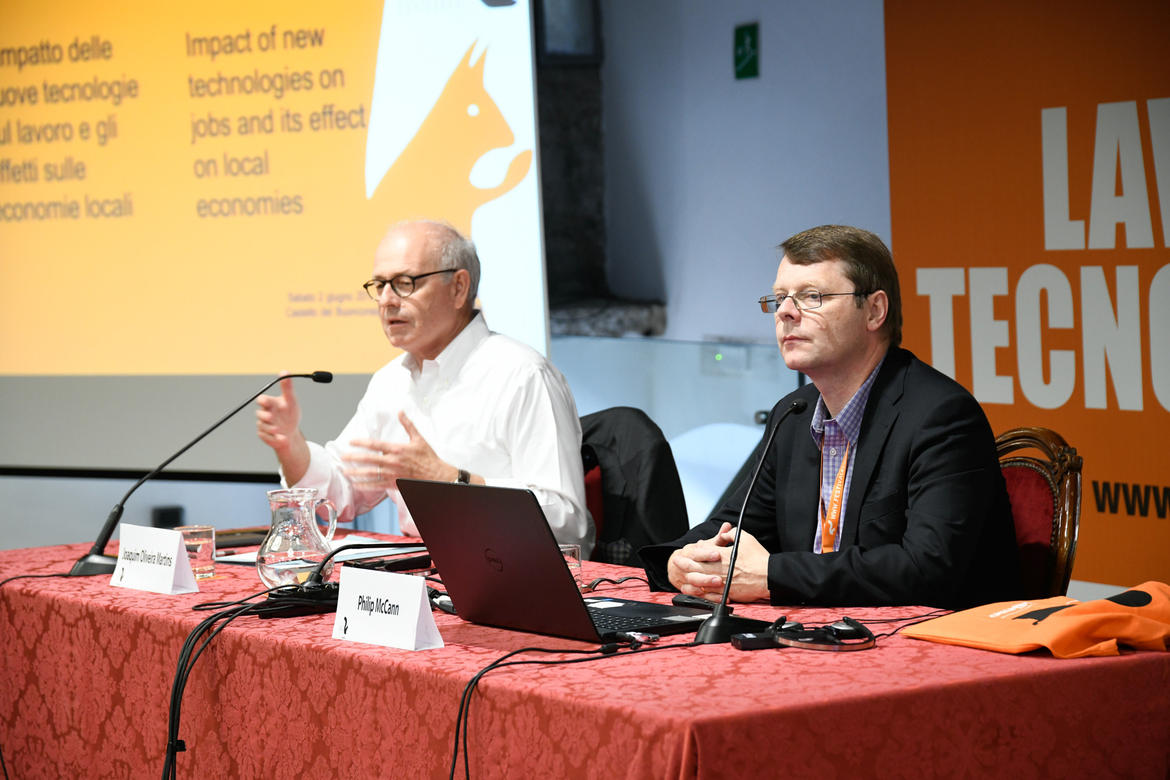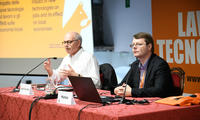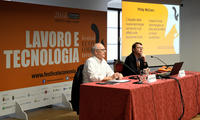
McCann kicked off his presentation by discussing the importance of productivity and why we should be careful regarding the optimistic role of technology in society. Productivity matters because it is fundamentally linked to prosperity and increasing productivity allows countries, regions, and cities to raise standards of living. However, productivity can also have important distributional consequences creating winners and losers in society.
We should be cautious of technology because it only increases the divide between the winners and losers due to concentration. Like in the US, when Europe experienced it’s “Walmart effect” of having sectors take advantage of technology, sectors became concentrated in certain areas such as the financial sectors in London. This leads to a spillover effect where often young people leave their hometown to go towards the jobs in larger cities and thus smaller and more rural areas get left behind. Therefore the assumption that technology will diffuse to everywhere and make lives better for everyone is naively optimistic.
This unequal distribution of technology leads to divisions in society within countries and has large political consequences. In the US the divide is between urban and rural areas whereas in Europe the divide is on a more regional basis. For the US, this was evident in the 2016 election where rural areas voted for President Donald Trump where as every city of over a million residents (except for Dallas) voted for Hillary Clinton. During the Brexit referendum, voting was split with the more prosperous regions voting to remain and the poorer regions voting to leave.
The concern of McCann is that regions vote against their economic interests because of misleading political narratives. He pointed out that in reality, the areas in the UK that voted to leave are much more reliant on the EU economy than say areas like London that are more globalized and would be hurt far less by Brexit. The UK having a higher regional disparity within its borders than all of the Eurozone demonstrates a geography of discontent that ultimately led to the leave vote on Brexit.
The challenge of today is that as long as technology remains ahead of regulation, regional disparities will continue to grow and governance may often be too late to fix the geography of discontent within borders.
Website: https://2018.festivaleconomia.eu/home
Twitter: https://twitter.com/economicsfest
Facebook: http://www.facebook.com/festivaleconomiatrento
Instagram: https://www.instagram.com/festivaleconomia/










